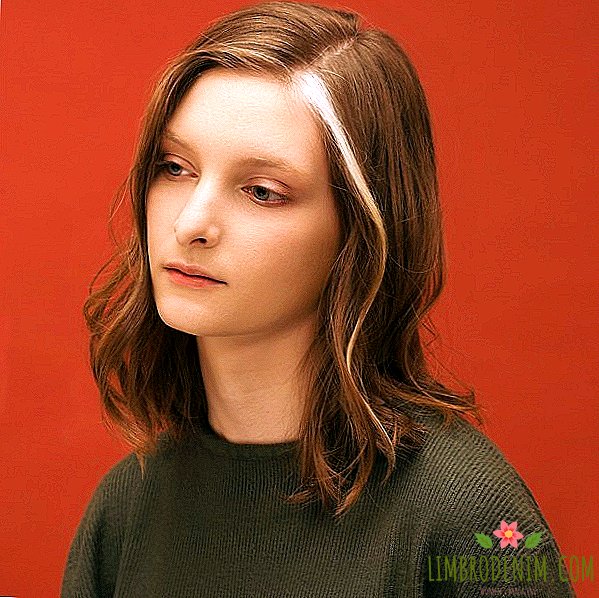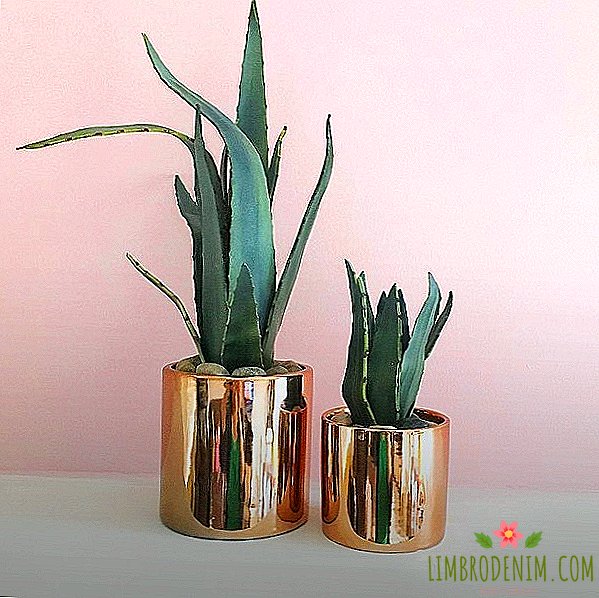How I moved to Europe to study blood cancer
When people ask me about work, I get a little lost. "Scientist" or "researcher" sounds too pathetic, "postdoc" is not clear. Therefore, I simply say that I am working in the molecular biology laboratory in Copenhagen. Research related to blood cancer: we are trying to understand what mechanisms are violated in this disease and what it leads to at the molecular level. We do not invent a new cure for cancer, and the methods we use cannot be applied to humans. But it's not for nothing: the results will become the basis for further development.

What does it mean to be a scientist
"Postdoc" comes from the English "postdoctoral" - this is a temporary position in research institutes that can be occupied by scientists with a PhD degree. It is assumed that in three to six years postdoc you will become completely independent and be able to claim the position of the head of your own scientific group. But even if the stars converge, there are very few positions: only 10% of postdocs head their own groups, the rest have to look for something else.
A research lab is somewhat similar to coworking or an incubator for startups. We have mentors - the leaders of our and other scientific groups - we can learn from the experience, consult with each other, but are not obliged to follow these tips. We travel to conferences to draw attention to our work and make useful contacts. As in the startup environment, there are many incompetent talkative personalities and competitors in science.
We are constantly writing applications for grants to get money out of the "investors". In science, "investors" play a large role, but, as in the case of a startup, with success, fame and honor go to the incubator - that is, the laboratory. Success is the publication of an article in a prestigious journal; The top publications in the world of biology are Nature, Science or Cell. The more publications the lab has, the more chances there are for further “investments” and attraction of new ambitious projects. When I decided to study science, I didn’t really know all this, but I understood that it was not easy - and therefore it was so attractive.
Russia and relocation
I almost did not work in laboratories in Russia, so I did not fully experience local difficulties. I remember the constant savings on reagents and test tubes, the inaccessibility of scientific publications, the isolation of scientific groups even within a single institute or department. Nevertheless, the topic of our research was and remains to me interesting.
Inspired by the stories from gradus.org about graduate school in the United States, I began to pull up English and gather information in my second year at the St. Petersburg Polytechnic Bachelor. To improve my resume, I applied for summer internships at several US laboratories and at the same time for the summer program at the Max Planck Institute of Immunobiology and Epigenetics in Freiburg. That year in Sweden, we created a single portal for admission to study for all universities, and I just sent the same set of documents. Then I had no urgent need to leave - I was going to study in a magistracy in Russia.
I was not taken to any of the programs in the United States, but I received a positive response from Germany. I also entered the magistracy at the Karolinska Institute in Stockholm and won a scholarship to the Swedish Institute. There was nothing to think about: for the first time in my life I got a chance to be completely independent. It outweighed all possible drawbacks and doubts.

Study in Sweden and an internship in Germany
Now I understand that I almost did not plan my move to Stockholm. When I opened the map of the city, I was horrified: I could not find the center - I saw only water. At the last moment I got a place in a dormitory with group mates - it helped a lot. We did everything together: preparing, going to school, training for exams, having fun and traveling. I'm not sure that I could find such friends and support if I lived alone.
I am very lucky that Sweden was my first European country. Everyone speaks English, a minimum of bureaucracy, a dislike for conflict, general relaxation - all this made the move less traumatic. All immigrants can learn Swedish for free. However, it is difficult to put it into practice: the Swedes almost immediately switch to English. Most of my classmates and friends in the hostel were not Swedes, and almost no one had an incentive to learn the language. My life was limited to studies and friends, so I almost did not need to adapt to a new country.
I was surprised to realize that I am leading and feeling differently when I speak English. I became more open, rectilinear and even more emotional. Although numerous linguistic studies confirm that bilingualism has such an impact on people, it seems to me that this is how I compensated for the lack of vocabulary - I just wanted to be understood. In general, I am pleased with my “new personality”: it is much easier for me to discuss unpleasant topics in English.
During my studies, I had to do practical work in three different laboratories. One of them I worked at the European Molecular Biology Laboratory in Germany - this internship changed my attitude towards science. The local atmosphere is like nothing: everyone around is incredibly ambitious, self-confident and they believe that the results of their work should be published only in top magazines. Although this atmosphere is not suitable for everyone, it motivates me incredibly. I decided that I wanted to get into graduate school in exactly such a place.
In the meantime, I lost my way to America and applied for several postgraduate programs in Europe. The presence of an almost completed European magistracy, experience in several laboratories, a recommendation from a specialist in the field of science in which I wanted to write my PhD, all this gave me a good chance to be invited to face-to-face interviews. Six months before graduating from the master's program, I signed a contract to work at the Research Institute of Molecular Pathology in Vienna.
Postgraduate Studies in Austria
Again, I was slightly prepared for the move, but my St. Petersburg friends, who were studying at that time, helped me a lot. Unlike Scandinavia, in Austria it is much more difficult to solve bureaucratic and domestic problems without knowing the local language. But there was no problem finding an apartment: for the first time in my life I had my own “huge” apartment with high ceilings just fifteen minutes walk from work. Great guys in the lab, a lot of new and even old friends, a beautiful city, a great institute — everything was fine, except for my graduate school.
Postgraduate studies at my institute had nothing to do with my studies: our duties included only work on research projects. No lectures, no exams, and no teaching. The supervisor only recently founded his group, was very ambitious and demanded a comparable return from us. It turned out that by local standards I’m not working a lot. Even if I had some interesting ideas or results, my manager had a hundred times more ideas, and he wanted even more results even faster. If he found out that we were doing something besides work, even if it had something to do with science, then he would become enraged.
No matter how hard I tried, my project did not move anywhere. When I stayed at home on the weekend, I felt anxiety and shame for not being at work. My friends from the institute had similar problems: the work never ended, it was difficult to draw a line and understand where healthy ambitions end and obsession begins. At some point I wanted to quit everything, but I talked with my past supervisor in time and decided to continue.
With experience, I began to better understand myself and my needs. For example, it is very important for me to change the focus: when everything goes wrong in the laboratory, hobbies and hobbies save. In Vienna, it is not easy to find interest clubs in English. The first two years I went to language courses that were paid by the institute. At that time, I was completely focused on work and did not want to leave the comfort zone and look for full-fledged communication in German. Over time, I began to go to yoga and volleyball - and although I began to understand the language better, I still spoke poorly. Unfortunately, I was never able to overcome fear and establish contact with the Austrians outside of work.
After the defense, for six months I was thinking about my bright future. The easiest option was a postdoc in science. In top institutions it is usually very difficult to stay after graduate school: everything is kept on a constant influx of new forces, ideas and methods. If resumes and publications list allows, postdocs can apply for personal scholarships - this is very prestigious and makes you an excellent candidate for the job. Mobility is an important condition for many scholarships: a candidate must move to another country and, figuratively speaking, bring acquaintances. Absolutely all my college friends, who decided to stay in science for the time being, left Austria. Of course, relocation is not always possible - it does not put an end to a career, but it complicates the task very much.

Postdoc position selection
I prepared myself thoroughly for the search for the postdoc position: approximately I decided on the area of research (genome regulation and cancer); consulted with a successful scientist from this field whom I personally knew; agreed to meet with some scientific leaders at conferences in order to communicate in an informal atmosphere and dispose of obviously unpleasant personalities. I did not look for open positions of postdocs on sites, but simply immediately wrote to the leaders of the groups of interest to me.
For three months I traveled to interviews in the UK, Denmark and three interviews on the East Coast of the USA. First of all, I crossed out the USA: there were too few personal grants, which means I would most likely be completely dependent on the grants of the supervisor. Salaries were also small, and I would have to share an apartment with someone - after the luxury life in Vienna, I did not want to do that. But in Denmark there were many opportunities to receive European and Danish grants. In addition, in order to attract foreign scientists, the Danish government introduced a special tax scheme: only 26% during the first five years in the country.
When choosing, I first thought about work and future prospects, and not about the possibilities of obtaining a permanent residence permit, citizenship, integration, or even assimilation. About a year later Brexit happened, and then Trump. Predicting what will happen in a few years is very difficult, so I always focus on the most stable thing in my coordinate system - work. But even this does not always work: one of the groups in the USA in which I could work ceased to exist after a sex scandal.
Life in Denmark
Denmark is similar to Sweden in its lifestyle: the main thing for them is "hygge", or "coziness." You need to enjoy simple pleasures: nature, socializing with family and friends. After Austria, it was unusual for me that the buses might be late, or the plumber might forget about the appointment three times. Nevertheless, any problem is easily solved by mail or call, and all at least somehow speak in English. Immigrants can attend language courses for free for three years.
After so many moves, I noticed that the most important time is the first year in a new country. There is some kind of energy, a desire to get out of the comfort zone, an interest in everything, and other people feel this. Over time, there is a circle of regular friends, the effect of novelty passes, and others no longer perceive you as a "newcomer." I decided not to wait until my Danish level reaches the desired level, and immediately enrolled in a volleyball club. Yes, I constantly have to ask again in English, and I can not engage in every conversation. Nevertheless, I like the fact that I have acquaintances Danes.
I immediately noticed that in Denmark women are more self-confident - and I like being around them. In Europe, and especially in the Scandinavian countries, they pay a lot of attention to gender balance, especially in high positions - at the level of leaders of scientific groups or professors. In my institute in Copenhagen there are five leaders and eighteen men in similar posts. In my past institute in Vienna there were four and thirteen, and that was only due to the actions of the scientific advisory committee. It consists of well-known scientists from different countries and makes suggestions for improving the scientific life of the institute.
I do not think that the situation can change dramatically, but at least in Europe special programs (for example, //www.eu-libra.eu/) are talking about it and organizing to help women realize their potential in science. Only women can apply for some grants or awards (for example, such and still such) and some positions of heads of laboratories are open only to women. Nevertheless, this causes indignation to some: one of my scientific leaders somehow "complained" that he would soon have to write in applications for grants to "Alexander", and not to "Alexander". For myself, I decided that "haters gonna hate" anyway. I still have three postdoc years in Copenhagen ahead, and then again the need to choose.
Photo: Aleksandar Mijatovic - stock.adobe.com, moeimyazanyato - stock.adobe.com, Klaus Rose - stock.adobe.com, Ffooter - stock.adobe.com





